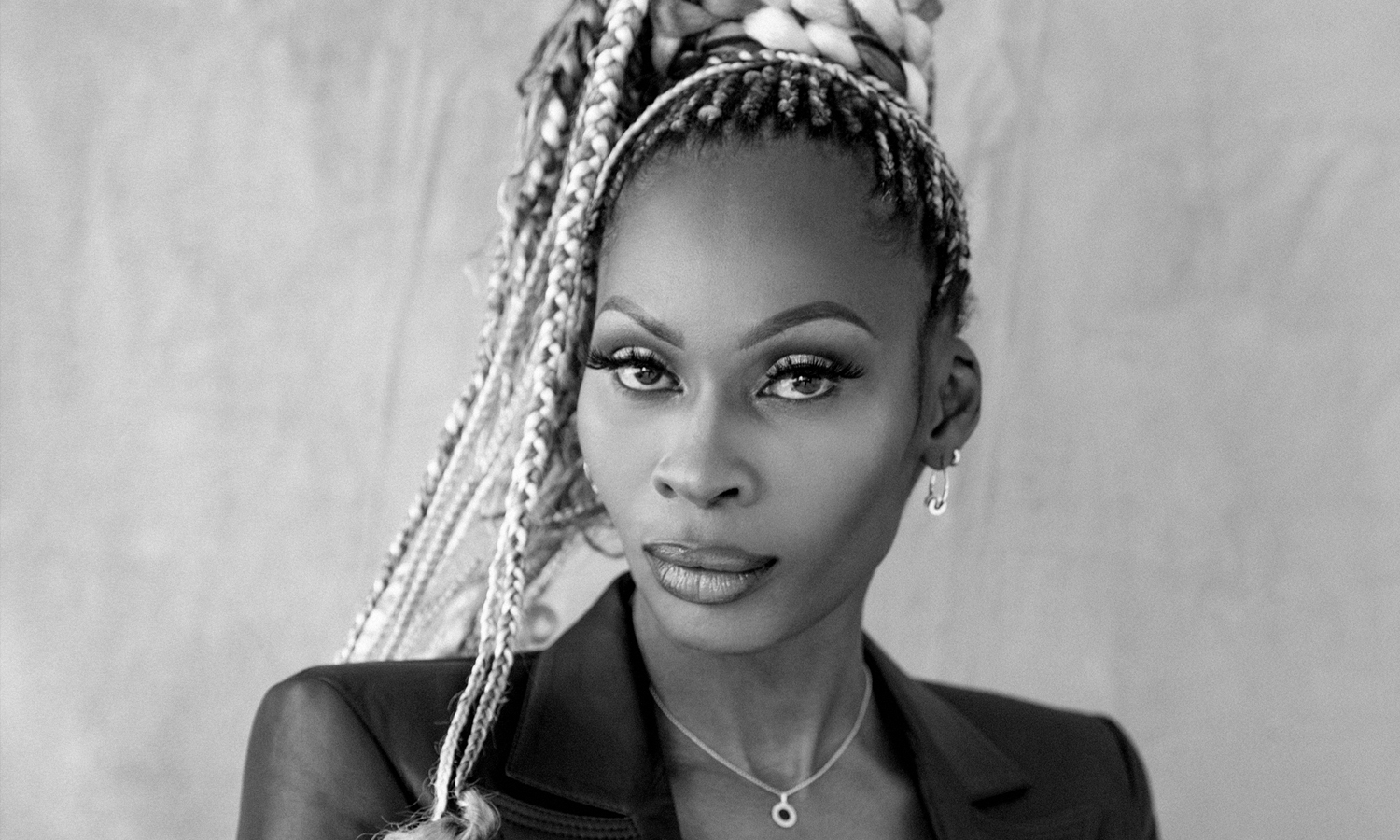Some of you may know her as Elektra on the Ryan Murphy television masterpiece, Pose—the FX series that captures and chronicles New York City’s ballroom culture scene in the 1980s and 1990s, shedding light on the underground culture and chosen family networks that exist to this day. But one quarantine afternoon in late August, I got to know the woman behind the character. Dominique Jackson is more than just an actress—she’s a multi-faceted human who has become a pioneer in the queer community for the ever long fight and support she’s been giving to those in need. After debuting back in 2018, the groundbreaking series propelled Jackson into global phenomenon status for queer folk everywhere, helping shed a light on the many beautiful talents that exist and deserve recognition. Even in this quarantine, Jackson shows no signs of slowing down. As the multi-hyphenate gears up to reprise her role for season 3 of the hit series, Jackson and I get real about the societal pressures and public perceptions placed on trans folk everywhere, while opening up about the many experiences and lessons she learned and reflecting on what has been a tumultuous year for the trans community as a whole.
Dominique Jackson: How do you feel about what happened to Eden (Estrada), Jaslene (Busanet), and Joslyn (Allen)?
Kevin Ponce: I got sick from watching it and I’ve been replaying it to understand what happened better and I still cannot believe it.
DJ: It is so sickening. It is ridiculous—the things that us girls have to go through. The good thing [about this] is that they are alive, they are pressing charges, and the community has rallied around them. I’m happy [about] that. I got a message from Eden yesterday, and I just sent her back one this morning, because I knew her from Strut and we’ve always stayed in touch. [So please] I’m telling you, baby, please stay safe.
KP: 100%. And you as well. I was getting on the train yesterday to go to work and I questioned myself on if I feel comfortable going out during quarantine and work in downtown Manhattan. It’s scary to have to question this now, especially with the tragic events our community has experienced lately. To this day, there’s unfortunately been over 28 death of trans and non-conforming people, making this the deadliest year for our community. How are you feeling with everything that’s going on?
DJ: It put me back into a space of being worried about my agoraphobia coming back and that’s something that I fight with every day. Being locked in the house, I had to fight against getting to that comfort point of being locked in and not wanting to go out. With all the deaths of my girls, it just put me in this place of [thinking] we won’t win. I felt like anyone could walk up to me and it felt like it was a reverse [in time]. [Whenever] I go into a crowd, I am at times so nervous because when people are approaching me with their hands open, [I think] ‘Is this person gonna hug me or end my life?’. When people recognize me, I [never] know where they’re coming from and that’s the worst part of this. This is a result of all of these murders of my sisters. It has made me very fearful, but I know that fear is also propelling me to want to live because I cannot be locked in a box anymore.
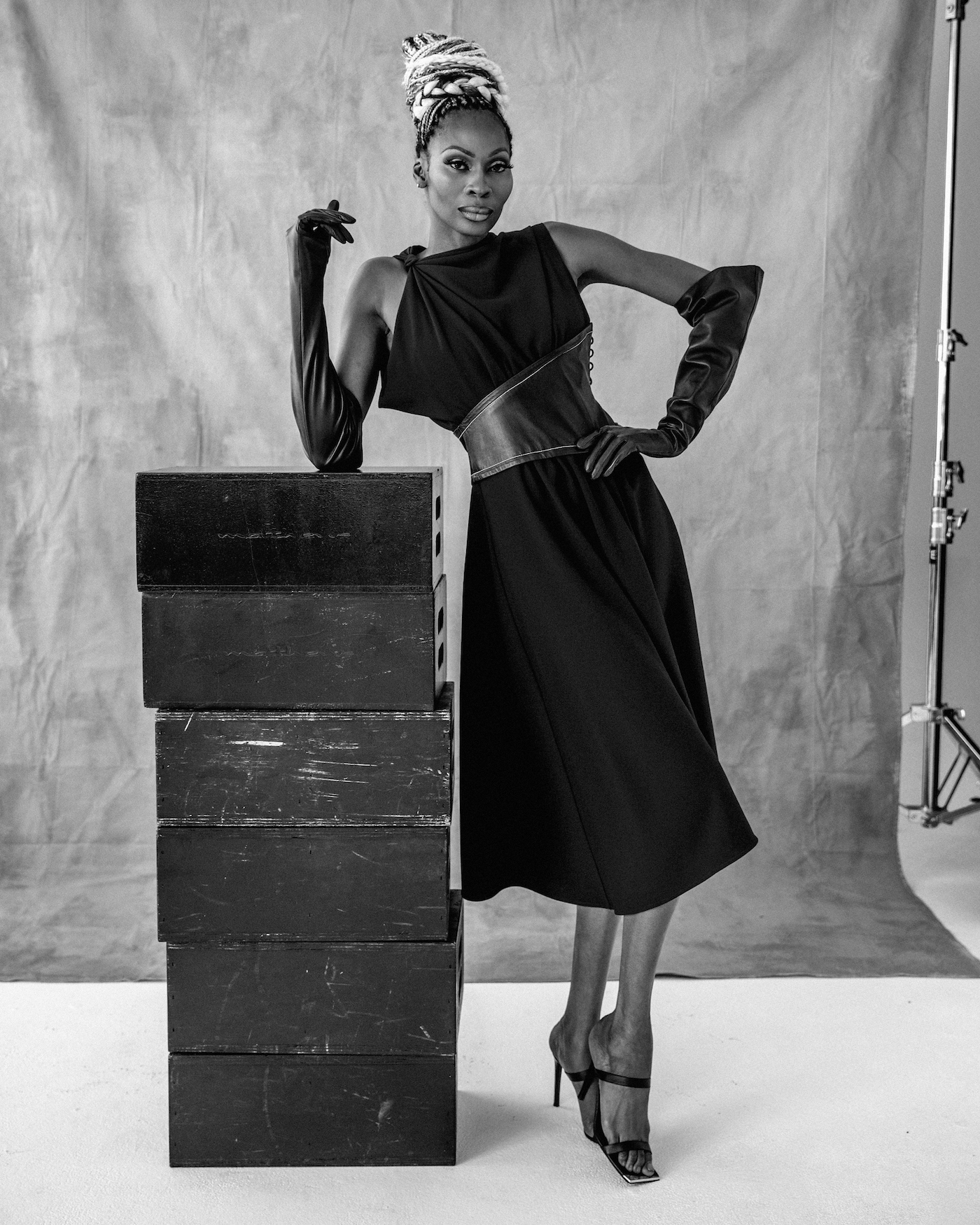
KP: Never again. We can’t go back to hiding in the shadows of others and morphing ourselves to appease others when we know our worth and know that we deserve a place in society.
DJ: Yes! And [it’s] not [about] going to doctors [for surgeries ] to make ourselves look passable but [about] having surgeries to enhance [ourselves]—surgeries that we want. Growing up, I was told ‘Men don’t want a girl with a skinny body or short hair’ and [I think to myself], ‘How about my intelligence? How about them seeing me for me?’. Why are we all still in this frame of mind of [shaping] our bodies, not because it empowers us, but to attract the opposite sex? Men don’t do that for us.
KP: It’s those traditional and toxic masculine traits that I can never conform to.
DJ: It’s not only toxic masculinity. It’s fragile masculinity—where you are so afraid of the success of what you think is less than, so now you beat us, you kill us, and you hurt us. You have to stand over us with your shoulders spread so that you can assert your power—instead of realizing that power is within you. Being able to say, I know my place and I respect your power—that’s a real man.
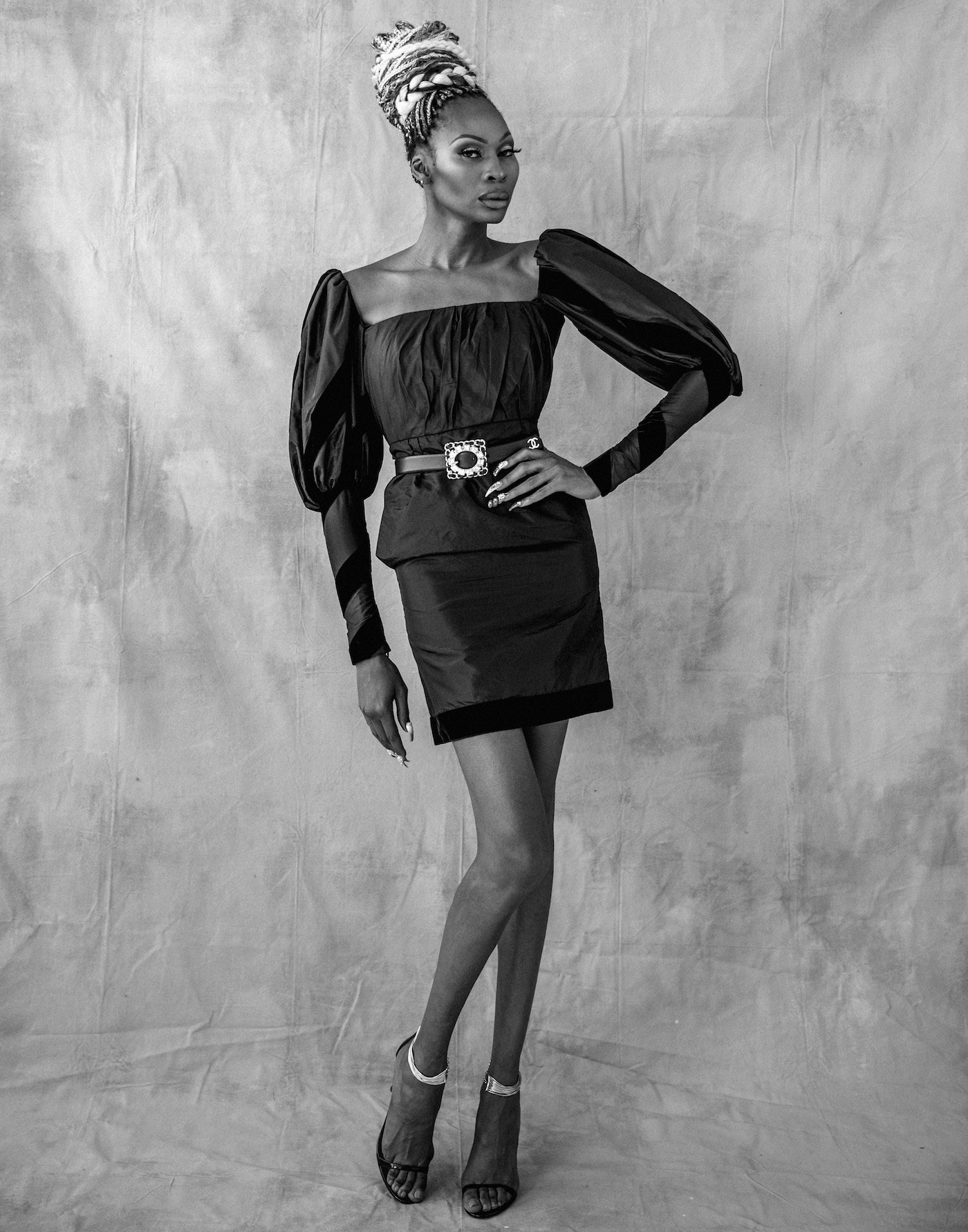
KP: A thousand percent! Those real men come few and far in between. It’s such a rarity in today’s society. I honestly wish that with this new generation that is growing up, they understand that there are communities apart from theirs and they must develop respect towards all genders. I remain hopeful that there’s going to be a shift in masculinity, towards a more liberated and accepting sense, where they can help create a safe space for all. I’m sure a lot of those uncomfortable or life-threatening situations were brought on by men.
DJ: Yeah! There’s something about men [putting] us in this place of fear [where] we have to become children to them and it causes us to not respect or stand up for ourselves. People need to realize you don’t have to always try to control things—you just need to appreciate it. For a lot of people, they just need to appreciate and respect the fact that trans lives matter [and that] we exist. Like if you’re walking down the street and you see a beautiful man, me being trans shouldn’t cause me to be killed for that.
KP: It is those situations that a lot of us have been placed under that are so concerning. I never know what situation I’m gonna be put in but I know how the narrative is going to go. The minute we say that we’re trans, we know the reaction and the perception we are going to receive. It’s scary that we have to prepare a script on how to handle aggression or being fetishized. Even with the show, has it been overwhelming to deal with how society perceives you, now in a more spotlighted manner?
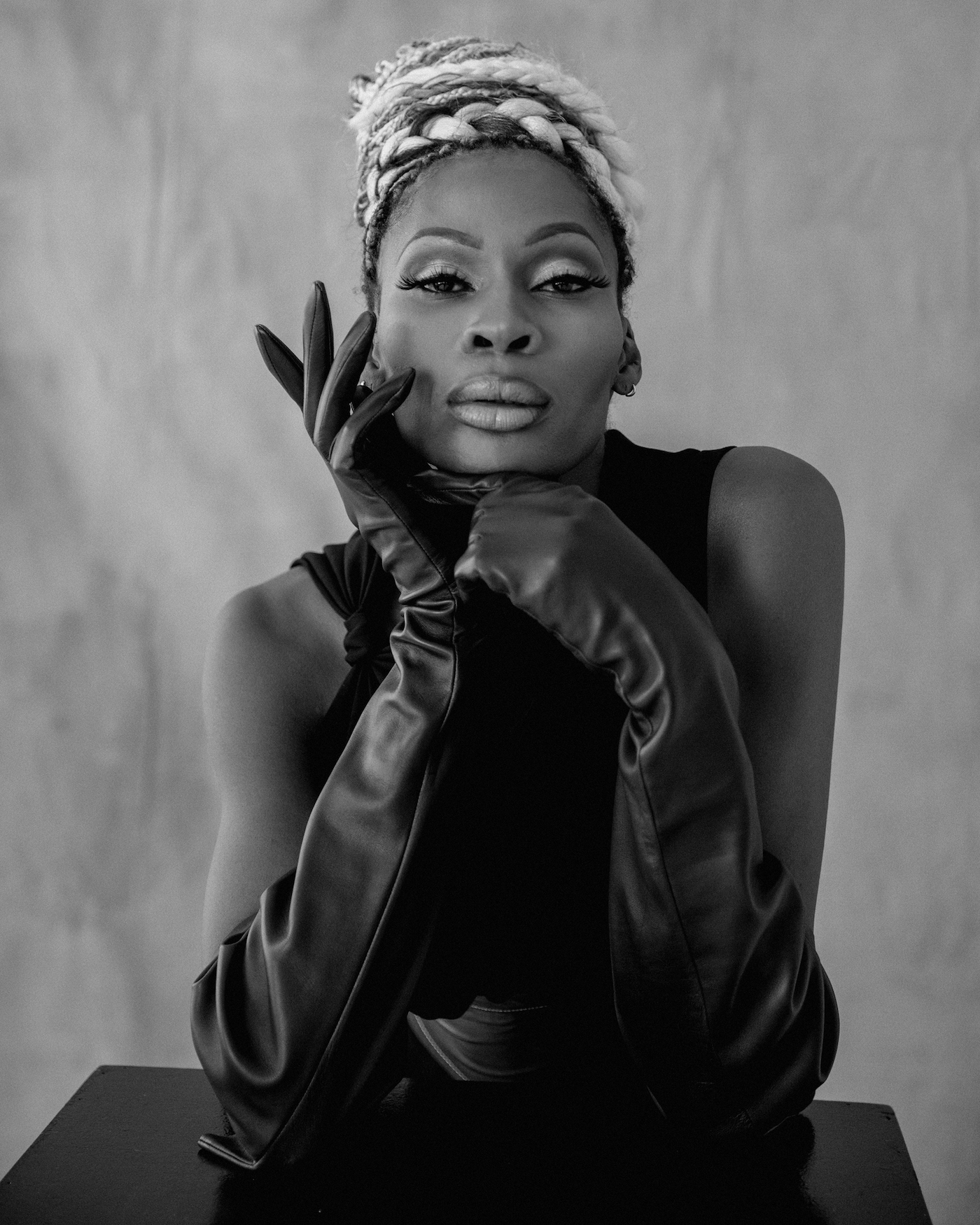
DJ: There are [overwhelming] moments, but the entire situation is fantastic. It is what I prayed for. Even though there were times when I doubted myself, there was that inner voice that just kept saying to me, this is your path. The overwhelming aspect comes in many forms because it’s constant work and having to relive the trauma over and over again while dealing with PTSD, [can] at times become a bit too much. People perceiving that I am Elektra 24/7 can be a bit draining [but] I am grateful because if they think I am Elektra [every day], then it means that I am doing my job. One thing that I would always love for people to know is that they only see the end result. They see the glamour but they don’t know the hours of hard work and dedication. I wish that people would not immediately think that [because] she’s on TV, she has money—it gets really draining [when] people that are asking for things. I remember I had about $15,000 worth of requests and I only had like $3,000 in my bank account and I [would] send money out and my rent came in and couldn’t pay it. I would think [to myself], ‘here’s this girl on TV—everyone else is happy and [yet], I have nothing.’ So I had to stop that and now I am in a space of looking out for [myself]. I feel as trans women, we will give people the world but they will never be considerate of us. A lot of times we are bullied into doing things and then told that we don’t belong.
KP: It’s disheartening because we’re very giving, in every sense of the word—whether it’s for a friend, family, or even the people we choose to be involved with.
DJ: When I was director of programs for Destination Tomorrow—an agency that is Black trans-led and founded, I [would] speak to these women and always [hear] ‘I give and I give, and I took my kids in and helped [them] and now they won’t even to speak to me’. Then, I started going through the same thing where people [were] attacking me and this is when I really started to wake up. I’m the type of person [where] if I see you need help, I will help you. Whether you thanked me for it or not, I will try to help you. What I wanted in life was someone to motivate and push me, so that’s what I tried to give to others and when they cannot uphold it, I walk away.
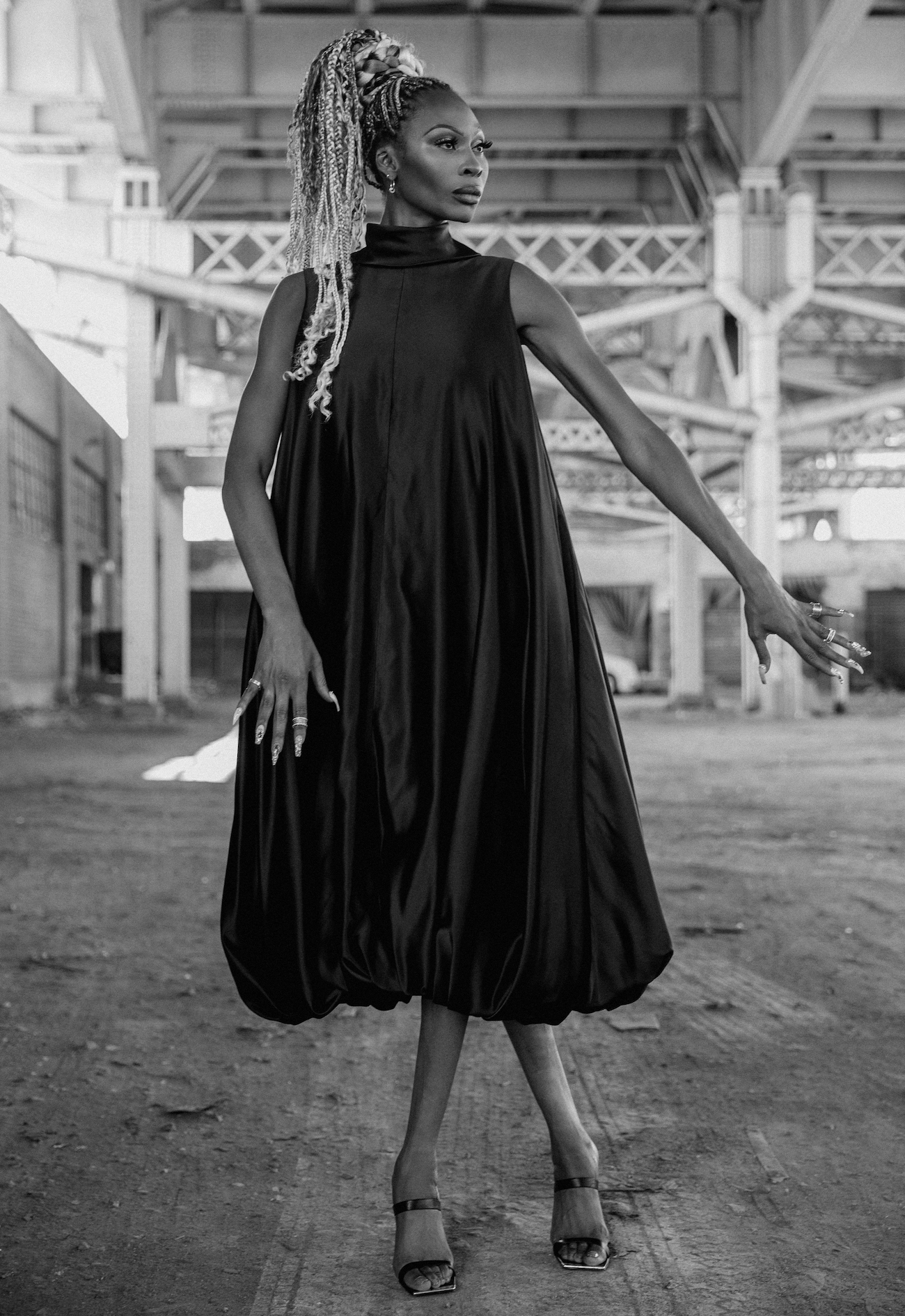
KP: That must be so challenging. I know the role of Elektra had some complications around her being the house mother. Was there any sort of hesitation when playing her, knowing that the audience might have a negative reaction towards her?
DJ: Oh yeah! When I first read for the auditions, I saw the power in her, but when we actually convened on set and I had to deliver those lines to beautiful Blanca and speak to my children that way—it was so far off from me. Realizing that [Elecktra] was the antagonist was kind of hard. I felt like ‘Oh my gosh, the world is going to hate me and I’m always going to be the bad guy’. I went through it and did my best but on the inside, I was kind of going through a bit of depression [from it]. You know, I was outside of Saks [one day] and this Caribbean woman comes up to me and she says to me ‘Oh, you play Electra!’ and she just goes off on me! She’s like ‘You’re not acting! That is who you are! You are a wicked woman! How could you do that to Blanca?’ And she read me to filth. But in that instance, I had to stop and think, you know what? She’s not separating Electra from Dominique. So I smiled and said ‘Well thank you, ma’am. You’re letting me know that I’m doing a good job.’ and that was how I was kind of able to overcome that. For a very long time, I felt really horrible about being this evil Elektra so I had to really reevaluate her. Once season two came along, I understood where she was going. [Also], the whole homelessness thing took me through it because it’s so close to home—it’s actually my truth. We were filming in a penthouse that looked over Central Park and I [used] to sleep in Central Park, so it was a full circle [moment]. I’m never going back there though!
KP: No, no! Let’s never do that! Did you ever feel triggered when there was a scene like that in the show that resonated deeper with you, where you can link back to an experience in life?
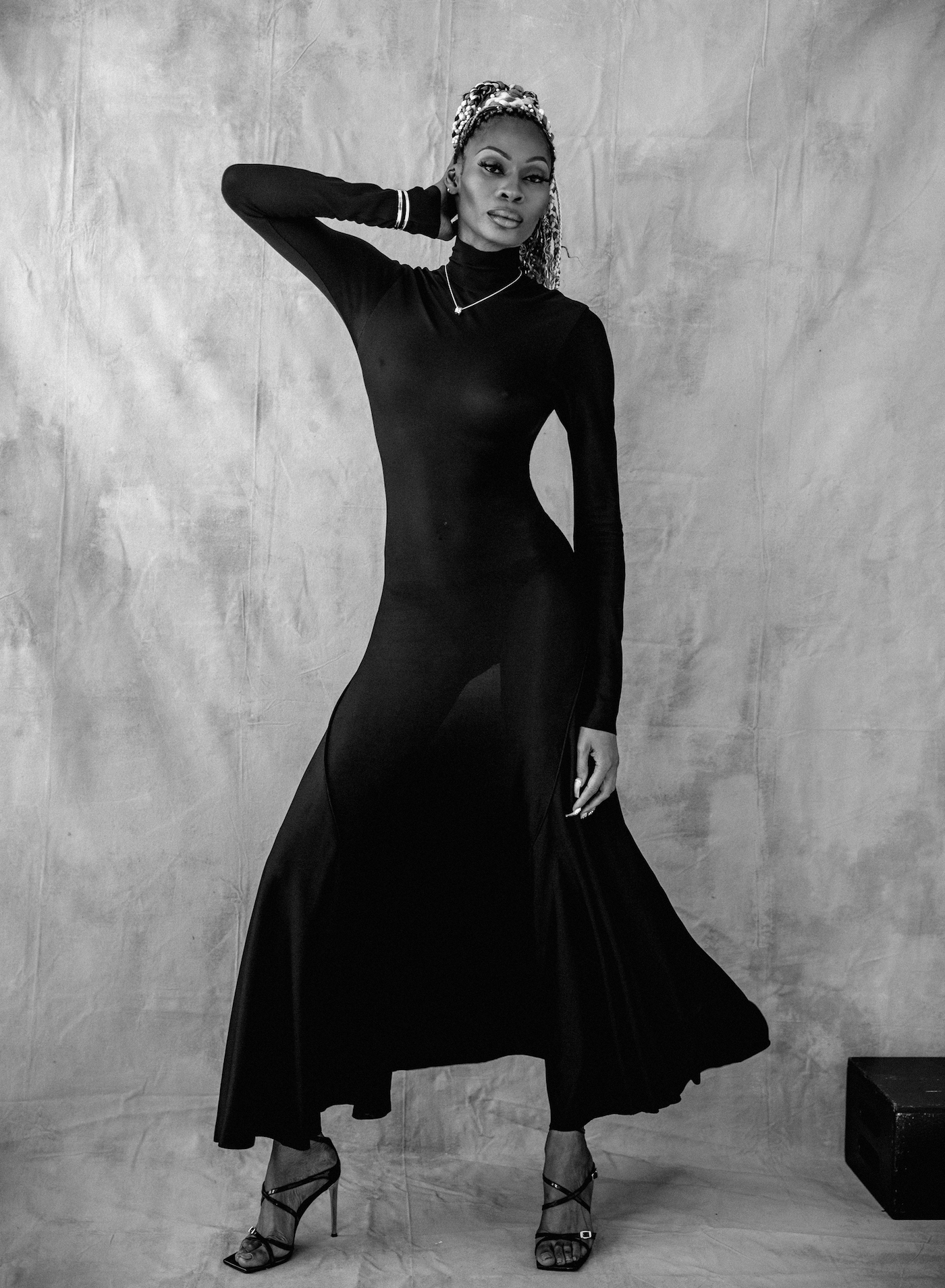
DJ: Yeah, like going to Candy’s funeral and filming the [scene] of Dorian Corey. It took me back to hearing the stories, going to the ball, and [listening to] Paris Dupree speak about being incarcerated and thinking [back to when] I was barely new to the scene in 1993. So when they started speaking about this stuff, I was just fascinated by it. When it came to playing that part, it really hit me hard because all the stories that I heard from people who were with her and in her house, we’re now coming to life—it was gut-wrenching to do that episode. One of the fun parts is being able to take everything that I know from the ballroom and just bring it right to the set—you don’t even need choreography from me. So it’s all good in the sense of [knowing] there are the moments that are [depressing] but the overall [theme] is pulling it together and making it shine.
KP: I think Pose definitely carries a good balance of showing the real side of the community and ballroom scene, while also bringing the joie de vivre that has emerged from the doors. It’s all about celebrating life and I often wonder how much thought goes into these conceptual looks.
DJ: Analucia (McGorty) and Lou (Eyrich) and Mr. (Ryan) Murphy have really done the research and what I love is that when I walk into fittings, I don’t have to say a word. That’s what happens when you work with amazing professionals, right? When I walked into the fittings, I was just in awe because I really felt like I was sitting and listening to Jessica Fox talk about walking into Dorian Corey’s closet or one of the LaBeija’s talk about walking into Pepper LaBeija’s closet. The costuming respected the stories [being told] and it helped me deliver the lines too because I felt like putting myself in the place of those women. How the girls were back then when you work hard, you struggled, you lived in the project, [and] you made it out—these girls were able to feel a sense of empowerment.
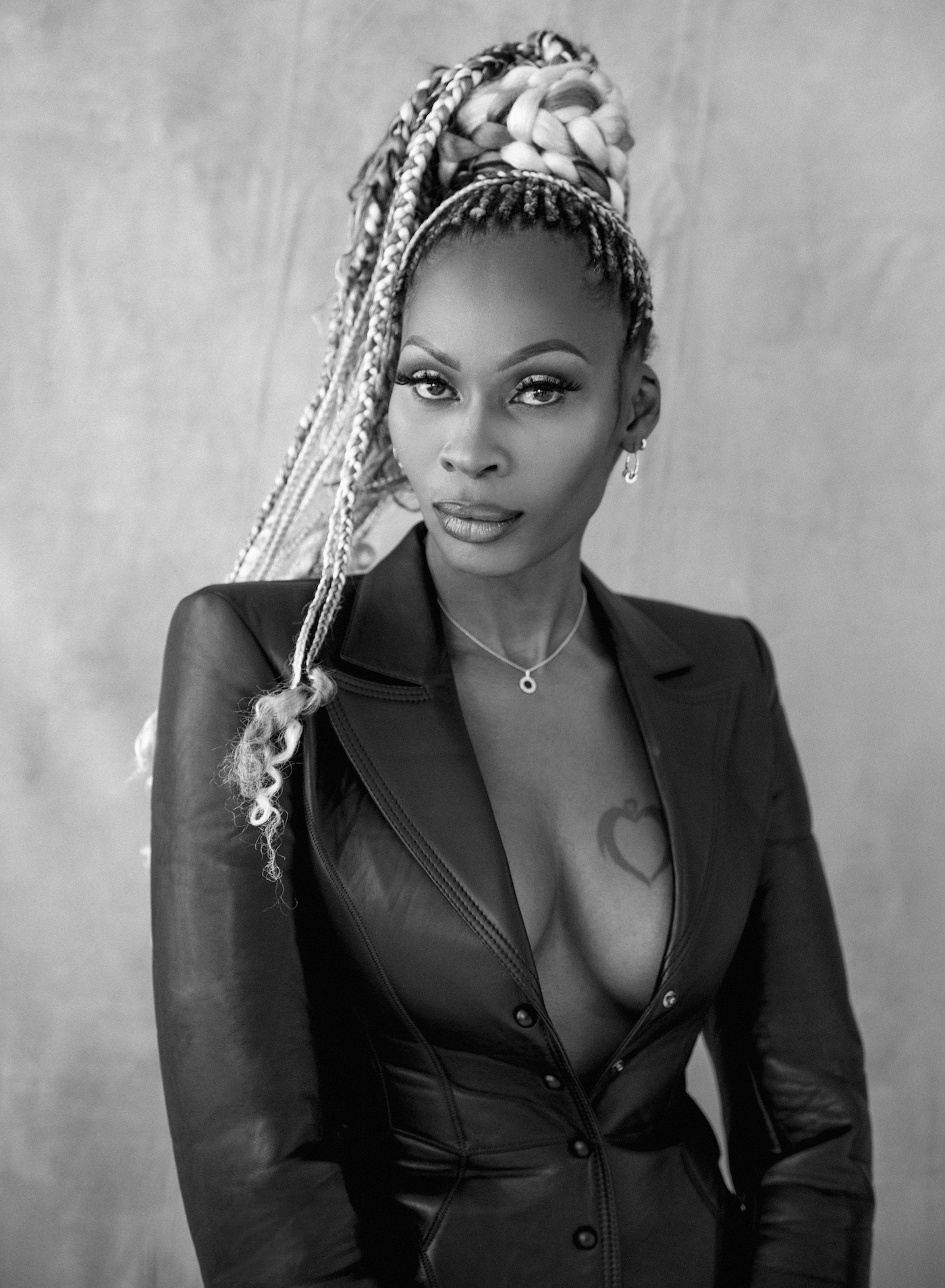
KP: Apart from the acting and activism that you’re involved in, there is that element of fashion within your being. From walking in MarcoMarco, TheBlonds, and being a part of a Valentino campaign, what are some dream gigs that you would like to have like in your repertoire?
DJ: Definitely Alexander McQueen, Zuhair Murad, and Zac Posen!
KP: Are there any other projects that you have in the works? How are you staying creative during this time?
DJ: I’m doing “Get The Shoes, Baby, Get The Shoes”, so we’re looking to possibly do like a little contest coming up in the next couple of months where people can go online and post their videos and maybe a win a pair of shoes, a little cash or something like that, so I really want to bring that back and see how much further we can go [with it].
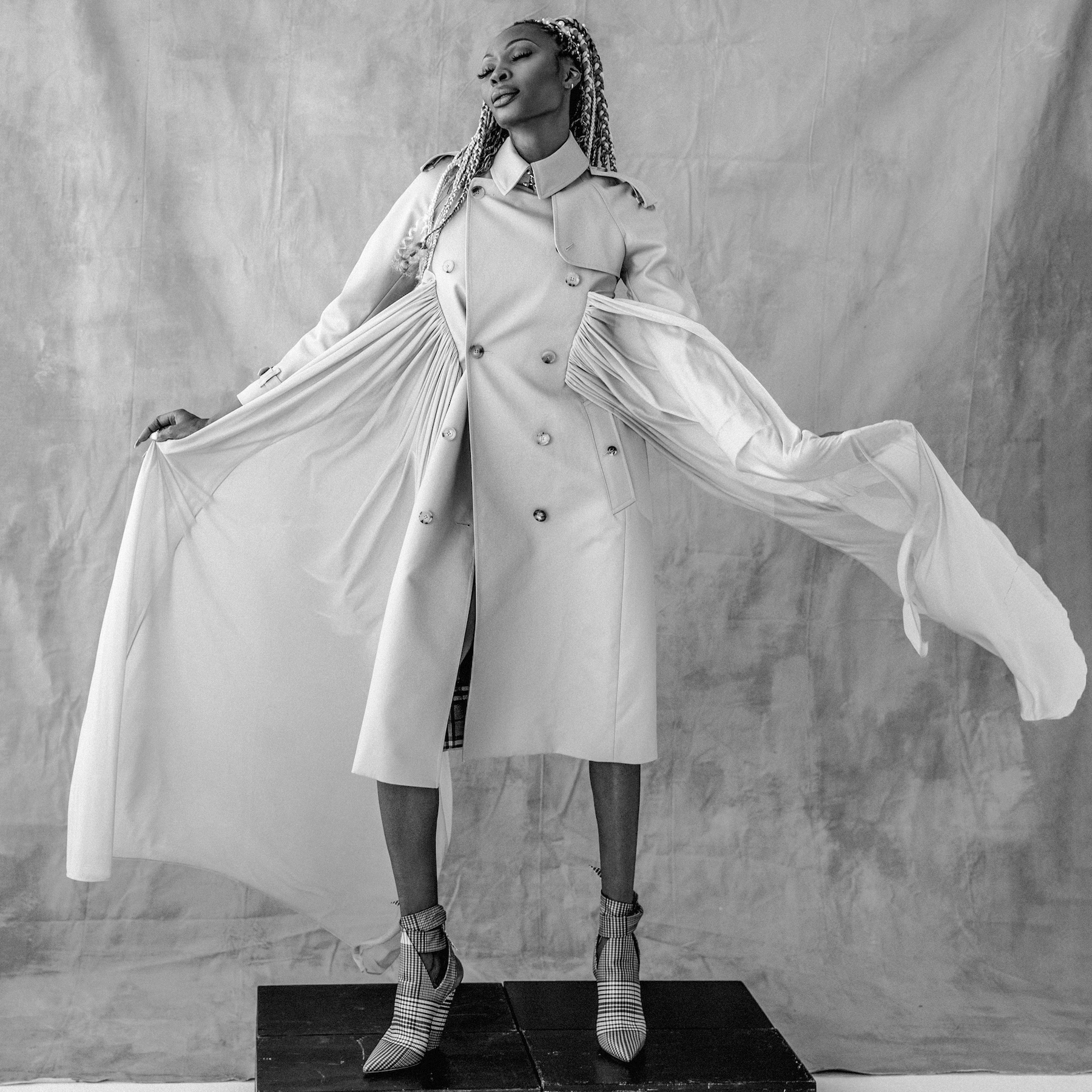
KP: Let’s talk about what’s next for Dominique. Where do you see yourself in five years: professionally, and personally?
DJ: Professionally, I hope to see myself running my own empire—my own business [where] everyone’s employed. Personally—when it comes to goals, [especially] when you’re from where I’ve come from and are now sitting in a [celebrity] space, I think personal goals are something I’m not considering right now. It’s more like ‘You have been blessed right now—move forward, be respectful of your blessings, be smart, and continue to be happy.’ I just want to be stress-free, working, and bringing smiles to as many people as I possibly can.
Discover More
